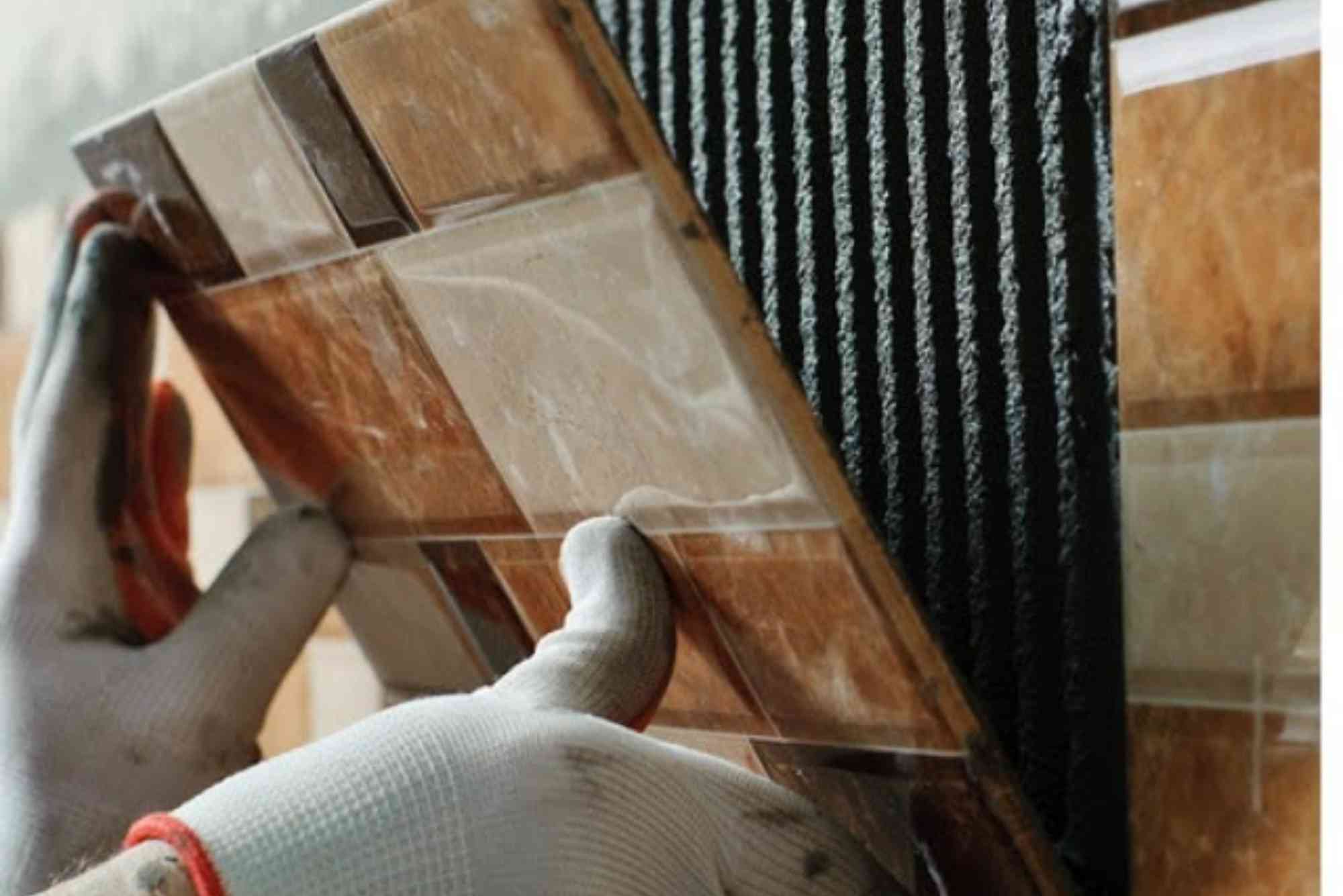What is a C54 License and How to Qualify in California
If you’re interested in working professionally with tile and stone in California, then understanding the C54 license is essential. This specialized license allows contractors to legally perform tile work, including the installation of ceramic, mosaic, quarry, and stone tiles on both residential and commercial properties. Issued by the California Contractors State License Board (CSLB), the C54 license is legally required to bid on any job over $500 involving tile work. Whether you’re an experienced tile setter looking to start your own business or a newcomer aiming to build a skilled trade career, qualifying for the C54 license is a critical step. This guide will walk you through everything you need to know about the C54 license, the eligibility requirements, the application process, and how to pass the license exam.
Understanding the C54 License in California
The C54 license is a specialty classification under the CSLB, designed specifically for tile contractors. It covers a broad range of tile-related tasks, including surface preparation, layout design, cutting, setting, and grouting of tile materials. These materials can include ceramic, slate, marble, granite, terrazzo, glass, and more. What sets C54 apart is that it focuses exclusively on tile work, which means it doesn’t extend to other masonry or flooring trades unless the tile installation is directly related. In California, performing tile work on any job that exceeds $500 in labor and materials without a C54 license is considered illegal and can result in heavy penalties.
Who Needs a C54 License?
If you plan to operate as an independent tile contractor or manage a business that takes on tile installation projects, the C54 license is mandatory. This includes work for homeowners, property developers, general contractors, and government construction projects. Even if you are subcontracted by a general contractor, having a valid license gives your business credibility and legal protection. Employers and clients also prefer to hire licensed professionals to ensure quality, accountability, and insurance coverage. Working without a license not only risks legal issues but also limits your earning potential and access to higher-paying projects.
C54 License Requirements
To qualify for a C54 license in California, the applicant must meet several specific requirements established by the CSLB. These ensure that only qualified, experienced professionals receive a license. The primary qualifications include:
Experience
Applicants must have at least four years (48 months) of journey-level experience in tile installation within the past 10 years. This experience must be verifiable and hands-on, meaning you should have worked under a licensed contractor or been self-employed doing tile work. The CSLB may require documentation such as tax forms, pay stubs, or signed statements from previous employers to verify your experience.
Education
While formal education is not a requirement, trade school or vocational training in tile setting can be beneficial. It may also help you understand building codes and techniques that appear on the exam.
Age and Legal Status
You must be at least 18 years old and have a valid Social Security Number (SSN) or Individual Taxpayer Identification Number (ITIN).
Business Entity Registration
If you’re planning to start a tile business, you’ll need to register your business with the California Secretary of State. This can be as a sole proprietorship, partnership, LLC, or corporation.
Bonding and Insurance
All licensed contractors in California must have a contractor license bond and may need to provide workers’ compensation insurance if they employ workers.
How to Apply for the C54 License
The application process for the C54 license is handled through the CSLB and includes several steps. Start by filling out the Application for Original Contractor License. This form requires detailed information about your work experience, personal background, and business entity.
Once your application is submitted and reviewed, the CSLB will send you a “Notice to Appear for Examination.” This will include your exam date, location, and other test-related instructions. Be prepared to wait a few weeks after submission for approval.
The required application fee must also be submitted. As of 2025, the fee is approximately $450 for the initial application and $200 for license activation.
After passing the required exams, you’ll need to submit your contractor bond, show proof of insurance (if applicable), and complete a fingerprint background check.
Once all paperwork is approved, you’ll receive your official C54 license, allowing you to operate legally as a tile contractor in California.
C54 License Exam Overview
Qualifying for a C54 license also involves passing two main exams:
Law and Business Exam
This test covers topics such as contractor responsibilities, contract requirements, employment laws, safety regulations, and business finance. All CSLB licenses require this exam, regardless of the trade.
Trade Exam (C54 Specialty)
This test focuses specifically on tile installation, safety procedures, blueprint reading, surface preparation, tile layout, material handling, cutting, setting, and finishing. Expect questions about moisture barriers, adhesives, grout types, industry standards, and building codes.
The exams are multiple-choice and taken on a computer at an authorized CSLB test center. To prepare effectively, study guides and online practice tests are available through the CSLB website and third-party providers. Many candidates also enroll in contractor license schools for structured preparation.
Tips to Prepare for the C54 License Exam
- To maximize your chances of passing on the first attempt, follow these helpful study tips:
- Focus on real-world scenarios. The CSLB often frames questions around jobsite situations.
- Review the California Contractors License Law & Reference Book.
- Take advantage of online study guides, flashcards, and practice exams.
- Attend preparatory classes or webinars if possible.
- Create a consistent study schedule over several weeks.
- Don’t ignore the Law and Business exam—many people underestimate its difficulty.
- Ensure you understand health and safety regulations, especially OSHA standards, as they are heavily tested.
Benefits of Having a C54 License
Holding a C54 license opens many doors for professionals in the construction and tile installation industry. Not only does it allow you to bid on larger projects, but it also helps you build credibility, grow your business, and attract more clients. Licensed contractors are more likely to be hired for government and commercial jobs, which can significantly increase your income. Additionally, being licensed allows you to take legal action to enforce contracts and ensures you’re operating within state laws. It also enhances your reputation among peers, clients, and suppliers.
Common Challenges Applicants Face
Despite the straightforward process, many applicants face challenges along the way. Some struggle with verifying their experience due to incomplete records or undocumented work. Others may find the exams difficult if they have little experience with business law or test-taking. Financial constraints can also be a factor, especially when paying for classes, materials, or application fees. The key is to start early, document your experience thoroughly, and seek help from license schools or mentors when needed.
Maintaining Your C54 License
Once you obtain your license, it needs to be renewed every two years. License holders must keep their bond and insurance updated, maintain good legal standing, and continue following all CSLB regulations. Contractors should also consider ongoing education to stay current with new industry standards, tools, and safety practices. The CSLB offers resources and updates regularly to help you stay compliant.
Start Your C54 License Journey Today
Becoming a licensed tile contractor in California is a smart move if you’re looking to build a long-term career in the construction industry. The C54 license offers legal protection, business opportunities, and personal credibility. While the application process takes time and effort, the rewards are well worth it. If you’re serious about tile work and ready to take the next step, begin preparing for your C54 license today. Get your experience documented, study for the exams, and apply through the CSLB to open the door to new professional opportunities.
(FAQs)
What does a C54 license cover?
The C54 license allows contractors to perform all types of tile work, including surface preparation, cutting, setting, and finishing ceramic, stone, and glass tiles.
How much experience is required for a C54 license in California?
You need at least four years of hands-on journey-level experience in tile work within the past ten years.
Is the C54 license exam hard?
It depends on your experience and preparation. The trade exam is detailed, and the Law and Business exam covers legal topics, so studying is crucial.
Can I get a C54 license without going to school?
Yes. Formal education is not required. However, many applicants benefit from contractor school prep classes and study guides.
How long does it take to get a C54 license?
The process can take anywhere from 6 to 12 weeks depending on application processing, exam scheduling, and documentation verification.
Do I need insurance to get a C54 license?
If you hire workers, you need workers’ compensation insurance. All contractors must also carry a contractor license bond.
Can I work in other trades with a C54 license?
No, the C54 license only covers tile work. For other trades like flooring or plumbing, separate licenses are required.
What happens if I work without a C54 license?
You could face fines, legal penalties, and even criminal charges. It also puts your clients and business reputation at risk.
How often do I need to renew my C54 license?
Every two years. Renewals require updated bonding, compliance with CSLB rules, and good legal standing.
Where can I take the C54 license exam?
At an official CSLB testing center. Locations are spread throughout California, and appointments are scheduled after your application is approved.





